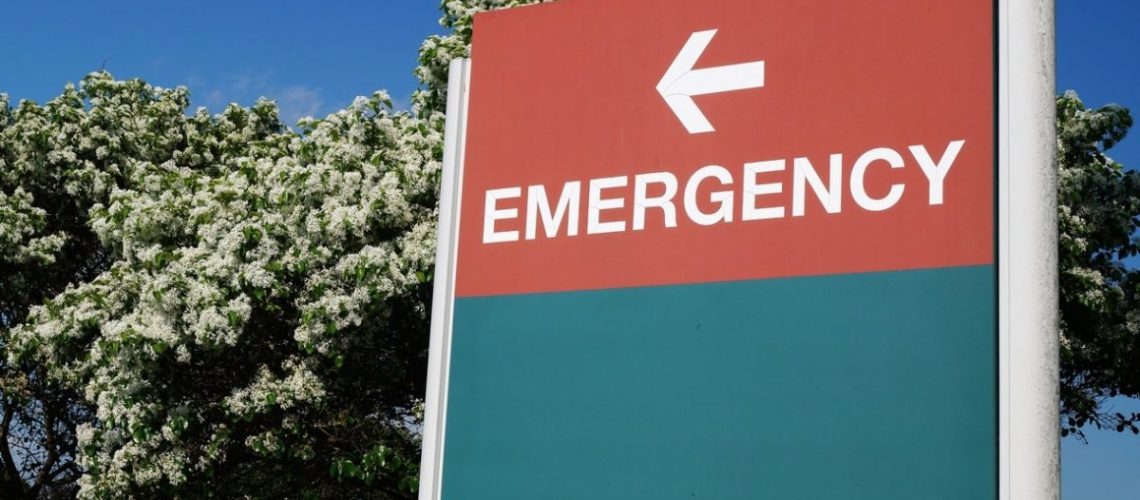On May 7, the Philadelphia Inquirer reported on the story of patient Steve Zangla, who went to Riddle Hospital in Media for sharp and distressing abdominal pain.
As is the case with most emergency patients, Zangla chose the hospital closest to him. As is the case with every patient who presents to any Emergency Department, he received a full medical evaluation without regard to his insurance coverage. In his case, the diagnosis was a kidney stone. Several weeks later, he received another painful jab: a $666 doctor’s bill that was denied by his insurance company — Alabama Blue Cross Blue Shield (BCBS) — which received Zangla’s bill through a BCBS affiliate in Pennsylvania.
The bill was processed incorrectly as an out of network expense by his insurance company, and so he received a “balance bill” from the provider.
All that was revealed when his wife contacted the Inquirer, which as part of its Health Costs project has been asking readers to share their medical billing experiences. By then, the Zanglas figured they had no alternative but to pay the bill.
How can a mistake like this happen? Well, it’s complicated.
Insurance companies are making their networks narrower, creating coverage gaps that lead to surprise bills. Patients are facing high deductibles and being provided with little information on the out of pocket cost of their medical care.
Health costs are becoming more transparent. Locally, the Inquirer’s Philly Health Costs lists cash prices for shoppable procedures at all the Philadelphia-area hospitals. Nationally, the Fair Health database is an independent database run by a nonprofit group that has compiled over 26 billion claims collected from insurance companies.
Narrow networks can most impact rural areas, where there are not a sufficient number of providers in network for any given specialty. Since 2010, two rural hospitals have closed in Pennsylvania. Although insurers contend that the charges are too high, physicians note that reimbursement at a fair rate, for services already provided, is a part of the insurance coverage that patients have paid for.
There is some reason to hope.
Pennsylvania lawmakers are considering new rules (bills HB 1553 and SB 697) to protect patients from surprise charges, though they do not go far enough. Medical organizations like Pennsylvania College of Emergency Physicians (PACEP) are working to ensure fair reimbursement from insurers when patients are not able to choose the provider; and emergency visits are prominent example of this. PACEP knows that when patients present to the Emergency Department, they should be focused on their health, not medical bills.
The decision to go to the emergency room can be tense and full of uncertainty from a medical perspective. Chest pain could be harbinger for a blood clot. Feeling short of breath may represent a devastating pneumonia.
Providing medical care is expensive. Hospitals must purchase high-end medical equipment, hire well-trained physicians and maintain safe workplace conditions in which to deliver high-quality care. These areas require sustainable funding and a fair reimbursement standard so that hospitals can keep their doors open and provide access to care for patients across Pennsylvania.
We need to act now as health systems become increasingly stressed.
The number of ED visits continues to grow much faster than the growth of the U.S. population, with ED visits increasing by 14.8 percent from 2006 to 2014 (compared to a 6.9 percent growth in the overall U.S. population in this same period). A central tenet of emergency medicine is to care for all patients in their time of need, regardless of insurance status or ability to pay. Emergency departments are the healthcare safety net of our communities, the only place where everyone can receive care regardless of their condition or insurance coverage. It is reasonable that insurance companies fairly reimburse emergency medicine providers while shielding patients from surprise, out of pocket bills.
Now is the time to contact your lawmakers, share your story and join the movement of Pennsylvania emergency medicine physicians who want to end surprise billing and coverage gaps. Your health is too important to settle for anything less.
——————————————————
Photo courtesy of: Philly.com
Originally Published On: Philly.com
Follow Medical Coding Pro on Twitter: www.Twitter.com/CodingPro1
Like Us On Facebook: www.Facebook.com/MedicalCodingPro







